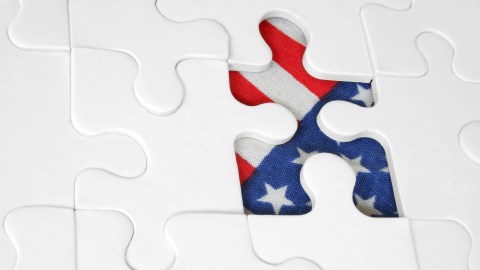Is Iowa Caucus Relevant Without Minority Participants?

The America I live in is not 90% white. The America I live in does not have more hogs than people. The American I live in does not have 60% of the electorate who describe themselves as evangelical Christians. While I can understand the media’s need for nostalgia, and our own American reverence for rituals, I have never quite been able to discern why the political preferences of Iowans should have any relevance for the rest of us.
“The prominence and first-in-nation position of Iowa and New Hampshire do elevate white primary voters over non-white ones, and in both parties,” says Thomas Schaller, a professor of political science at University of Maryland, Baltimore County.
Why (Very White) Iowa and New Hampshire Mean So Much in Politics
It takes 1,143 delegates to win the GOP presidential nomination at the convention in August. None of them will be earned tonight in Iowa, despite the wall-to-wall media coverage and the tens of millions of dollars that have been spent on advertising and organizing across one of America’s least representative states. This is the political equivalent of a debutante ball, or a qualifying race for the Kentucky Derby.
Iowa is a state of about 3 million people with, like Oklahoma, seven Electoral College votes. Not unlike Oklahoma, it is mostly white and the population is aging. The population of the United States is more than 300 million. That makes the 3 million good folks of Iowa 1 percent of the total U.S. population.
Of those 3 million Iowans, about 640,000 are registered Republicans. In the 2008 presidential election, about 57 percent of the voting populace went to the polls. If that percentage were applied, 364,800 Iowa Republicans would participate in the caucuses. We all know, however, that is not going to happen.
More than likely, around 100,000 people will show up in Iowa’s 1,784 precincts Tuesday evening. Most of those will be hard-core voters – the ones who always show up in the primaries. They will be mostly white and conservative. For sure, the tea party will participate in number.
The fact is, the Iowa caucuses in no way reflect the American voting public.
What Do The Iowa Caucuses And The BCS Have In Common?
However many votes President Obama loses from his 2008 total to voter apathy, voter suppression efforts, or the recalcitrance of disillusioned democrats, I still think the Republican nominee, whoever they may be, has to break McCain’s highwater mark in order to win the White House.
The antics of the last few weeks might solidify a candidate’s support among Iowa’s GOP faithful, but pandering to the caprices of the well right of center electorate in a state like Iowa has forced Republican presidential candidates, often against their better judgment, into doing and saying things on camera that will be impossible to deny in the fall when they want to appeal to independent voters who are still trying to decide which dog they want in this fight.
Next week, this all moves to New Hampshire, where the GOP candidates will pander to an even whiter population before the first-in-the-nation January 10th primary.




